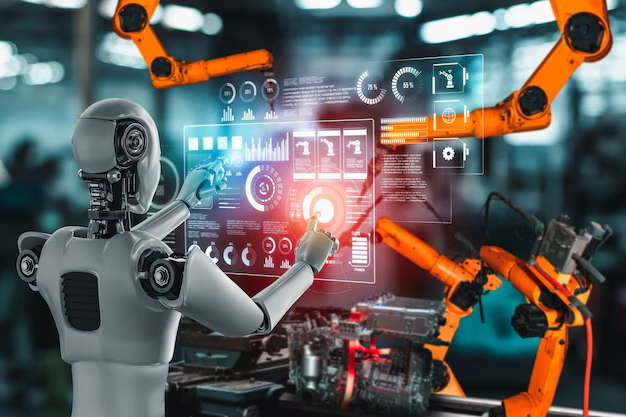Automation
Automation: Transforming Business Efficiency and Innovation
Automation is revolutionizing industries by streamlining processes, reducing human error, improving efficiency, and cutting operational costs. From artificial intelligence (AI) and robotics to smart software solutions, automation is reshaping the way businesses operate.
Why Automation Matters
⚙️ Increased Productivity – Automating repetitive tasks allows employees to focus on higher-value work.
💡 Cost Savings – Reducing manual labor and optimizing workflows cuts operational expenses.
⏱️ Faster Processes – Automated systems handle tasks in real time, enhancing speed and efficiency.
🔒 Improved Accuracy and Security – Automation minimizes human errors and strengthens data security.
Key Areas of Automation
✔ Business Process Automation (BPA) – Streamlining administrative tasks, from payroll to customer service chatbots.
✔ Robotic Process Automation (RPA) – Automating repetitive digital tasks such as data entry and report generation.
✔ AI and Machine Learning – Enhancing automation with predictive analytics, smart decision-making, and adaptive responses.
✔ Cloud and IT Automation – Improving IT infrastructure with automated monitoring, backups, and security updates.
✔ Manufacturing and Logistics – Using robotics, IoT, and smart systems for faster production and supply chain management.
The Future of Automation
The future of automation is driven by AI advancements, IoT integration, and intelligent robotics. Businesses adopting automation early will gain a competitive edge, reduce costs, and enhance scalability. However, companies must also invest in workforce upskilling to ensure a smooth transition into an automated future.
Final Thoughts
Automation is no longer just a luxury—it’s a necessity for businesses looking to scale, innovate, and stay ahead of the competition. By leveraging smart automation technologies, companies can unlock higher efficiency, cost-effectiveness, and long-term success.


